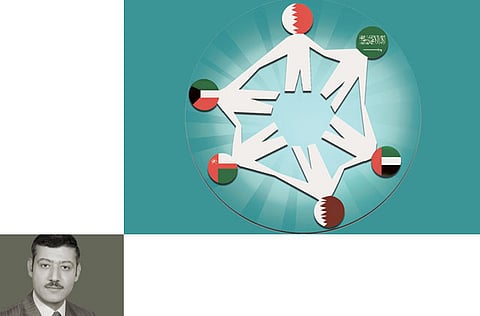Challenging Iran’s regional influence
Fearing a Washington-Tehran deal at its expense, Saudi Arabia has abandoned its traditional acquiescence in foreign policy

During the annual summit of the Gulf Cooperation Council (GCC) last December in Riyadh, Saudi Arabia's King Abdullah Bin Abdul Aziz took many by surprise when he proposed to move from cooperation to unity between the GCC member states.
Given the sensitivities which have historically coloured the seemingly warm relations between the Gulf countries, the Saudi proposal appeared as a far-fetched idea, to say the least. But last week, Saudi Arabia proved that it was serious about establishing a Gulf union; and that unity between Saudi Arabia and Bahrain could act as a nucleus for the proposed union, or a first step in that direction.
The Saudi proposal, especially concerning Bahrain, was an aggressive one indeed. One can judge its seriousness by the Iranian reaction. Tehran was quick to condemn the idea and accuse Riyadh of attempting to ‘swallow' Bahrain. Indeed, if one takes into account the sheer size of Saudi Arabia when compared to Bahrain, the Iranian accusation might sound logical.
Seen from a different perspective, however, it looks like Saudi Arabia is trying to save Bahrain from an Iraq-like fate. Following the US withdrawal from Iraq last year, Iran emerged as the most powerful actor in Iraqi politics. Riyadh seems intent not to leave Bahrain facing a similar fate.
Last year, taking advantage of the atmosphere resulting from the Arab Spring, the Bahraini Shiites, with Iranian support, tried to unseat the Sunni ruling family in Manama. That attempt was foiled when the GCC led by Saudi Arabia rushed to support the government.
Indeed, by accusing Riyadh of attempting to swallow Bahrain, Iran seems to have forgotten that it had tried to annex Bahrain right after the British departure in 1971. In addition, given the occupation of the three UAE islands, Iranian expansionism is not a matter of debate.
No difference
That occupation might have taken place under the Shah's regime, but the fact is that Iran's policies after the Islamic Revolution proved as lethal as those of an Iran ruled by the Shah, especially in relation to its position vis-a-vis the Gulf states.
Saudi-Iranian tension is not limited to Bahrain, however. It includes many other regional issues, but in fact, what irritates Tehran most is Saudi Arabia's new foreign policy.
Provoked by US indifference to the rising Iranian regional influence and fearing a US-Iranian grand deal at its expense, Saudi Arabia has abandoned its traditional acquiescence in foreign policy. It watched carefully how Iran skilfully took advantage of the US invasion of Iraq and Afghanistan to bolster its regional influence.
In this respect, the Islamic republic proved more successful than Iran under the Shah. First, it encouraged the Americans to invade Iraq and dispose its arch-enemy, Saddam Hussain, turning Iraq into a strategic cripple.
Second, it helped force the US out of the country, creating a vacuum in Iraq and sapping any US appetite for further military adventures in the Middle East. In Afghanistan, the US did exactly the same by removing the Taliban regime, another Iranian enemy, and is preparing to leave in 2014.
From a geopolitical point of view, US policies in the region had created an unprecedented opening for Tehran. Probably, for the first time in centuries, Iran is not surrounded by strong rivals. The collapse of the Soviet Union in the early 1990s released pressure from the north. Coming on top of the Ottoman collapse after the First World War, Iran now no longer faces a regional power that could challenge it.
In addition, with the drawdown of US forces in the Gulf and Afghanistan, global power had limited military options and there were even more limited political options for acting against Iran. Checking Iranian influence was therefore left to the GCC countries. Saudi Arabia has thus abandoned its traditional hesitation and decided to rely on the GCC resources to challenge Iran everywhere in the region. Last year, Riyadh foiled an Iranian attempt to establish a puppet government in Bahrain.
To the south in Yemen, Saudi Arabia led mediation efforts to resolve the political crisis and prevent Iran from taking advantage of the revolution against the pro-Saudi regime of former president Ali Abdullah Saleh.
In Syria, Saudi Arabia, alongside Qatar, is leading regional efforts to rein in President Bashar Al Assad, another ally of Iran. In Palestine, Saudi Arabia seems to have succeeded in distancing Hamas from Iran. In Iraq, efforts are under way to dispose the pro-Iran government of Nouri Al Maliki.
In brief, easing Saudi-Iranian tension has much more than the proposed union. We are, in fact, in the middle of a titanic regional conflict with far-reaching consequences.
Dr Marwan Kabalan is the dean of the Faculty of International Relations and Diplomacy, University of Kalamoon.
Sign up for the Daily Briefing
Get the latest news and updates straight to your inbox



